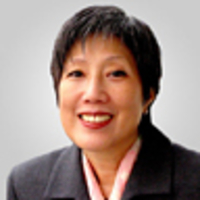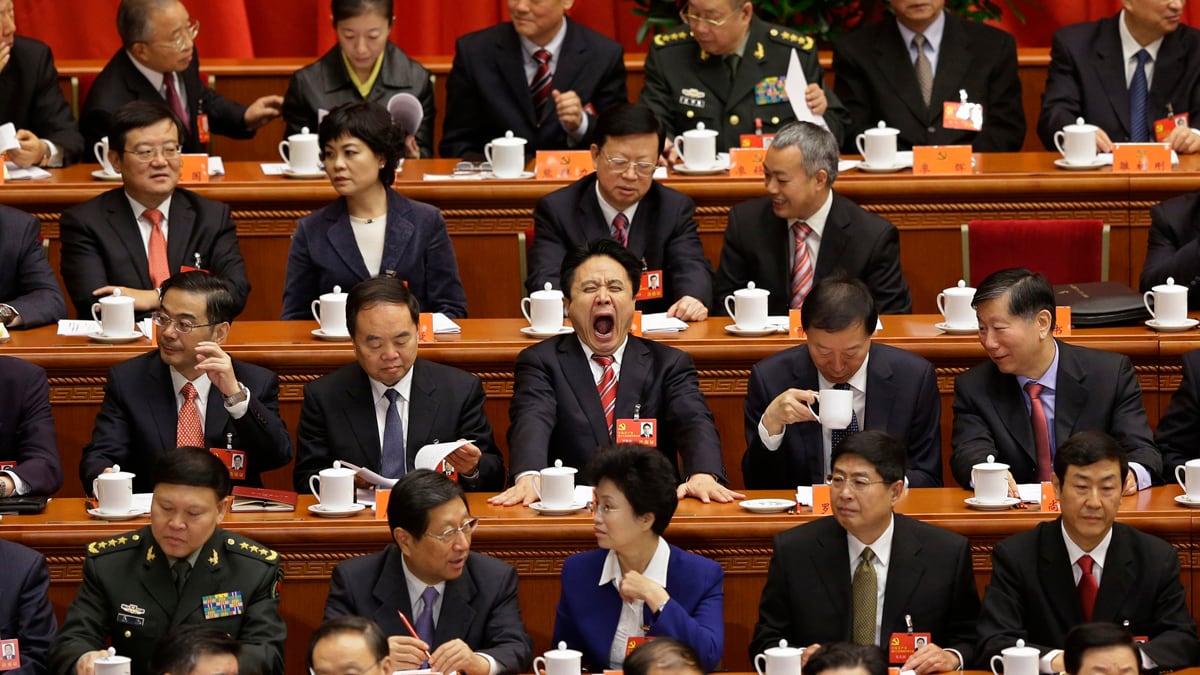The Chinese Communist Party opened its 18th National Congress on Wednesday with ritual speechifying and stringent state security on the streets of Beijing—but offered little indication as to how the party will move past the worst political turbulence that China has seen since the country’s traumatic military crackdown on street protests in the summer of 1989.

Indeed, the congress, which formally kicks off the nation’s once-in-a-decade political succession, follows a spate of corruption scandals, factional infighting, a slowing economy, and tussles over investment priorities, which have led to a serious crisis of legitimacy for the Communist Party.
The crisis has led many Chinese and foreign analysts to believe that the country’s political system will soon be forced to evolve into something new. Even state-run media organs such as Xinhua News agency have advocated some sort of change. “Just having economic growth is far from enough,” the news organization wrote recently. “The reform of the political system with greater democracy is also imperative.”
What that change will consist of, however, remains to be seen. On Wednesday, thousands of Communist Party delegates gathered to hear President Hu Jintao exhort his fellow party members to transform China into a “maritime power” and double the country’s per capita income. The president also acknowledged China’s growing inequality and warned that if efforts to curb official corruption fail, “the party, even the country, could perish.” In doing so, however, Hu promised to stick to China’s current system of one-party rule, declaring: “We must not take the old path that is closed and rigid, nor must we take the evil road of changing flags and banners.”
The president’s statement on Wednesday was widely circulated—and frequently derided—on Chinese microblogs, which are collectively known as Weibo. “We’ll walk in place until we die,” one Weibo user wrote. Yet even as the regime and its critics differ on how to solve China’s sundry problems, they finally seem to agree that the status quo has put the party’s continued existence at serious risk.
The possibility of political reform in China has captivated not only ordinary Chinese, but also many the world over. During the past decade, China has evolved into the world’s second-largest economy. Its commercial fortunes are intertwined with those of the West as never before. “Pull one hair and you move the whole body” is how one recent China Daily editorial described the country’s links to the rest of the world. From development priorities to currency exchange rates, Chinese policies are a global issue.
On Wednesday Beijing began its leadership change even as the political transition process itself remains in flux. Over the next week, for the first time in modern communist Chinese politics, a new leader will take power who was not tapped by an elder party strongman such as Mao Zedong, the late founder of modern China, or Deng Xiaoping, the architect of the country’s economic reforms. This transition will test whether a new generation of leaders is nimble enough to sustain the party’s hold on power through consensus politics—and still keep China’s economic miracle alive.
Next week, Vice President Xi Jinping is widely expected to take over as party head from President Hu and introduce six other members of the country’s new leadership team, a group called the Politburo Standing Committee. Together they represent a new generation at the top, taking charge as many of the party’s senior cadres retire. The new seven-man team is slated to be unveiled next Thursday, the day after the weeklong congress ends. (The congress’s official mission is to elect a central committee of about 370 members, who in turn endorse the 25-member Politburo selected by senior party figures in a notoriously opaque, closed-door process).
The current gathering is the climax to an extraordinary year scarred by political purges, high-level criminal hijinks, civil unrest, escalating nationalism, and an economic downturn.
Perhaps the most egregious scandal was the downfall of former Politburo member and Chongqing party boss Bo Xilai. Last month, Bo was kicked out of the Communist Party, removing the last obstacle to a criminal trial, which is expected to take place after the current party congress. Bo has been charged with massive corruption, obstruction of justice, and illegally spying on fellow leaders. He was also officially accused of improper sexual liaisons with various women.
Ordinary citizens have been transfixed by the political drama, and will be watching to see whether Bo fares better or worse than his wife, Gu Kailai, who was given a suspended death sentence in the murder of Neil Heywood, a British business consultant whom The Wall Street Journal reported had links to a British intelligence agency. In a press conference before the congress opened, party spokesman Cao Mingzhao said that combating corruption would be a priority for the gathering, and that Bo’s case holds “profound lessons” for the party.
A charismatic self-promoter who championed Maoist ditties and tweets, Bo had tried to build a “cult of personality” around himself—in hopes of snagging a promotion during the current transition—but rankled many top leaders in the process. His antics seem to underscore the need for China to institutionalize its succession mechanism, to move beyond the model of strongman politics. And so for many ordinary Chinese, as the words of President Hu echoed throughout the Great Hall of the People in Beijing on Wednesday, Bo’s shadow seemed to linger over the auditorium, a reminder of how power corrupts.




